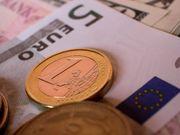Middle Eastern states took measures this week to weather the impact of a looming US-led war on Iraq on their economies
Published:
15 March 2003 y., Saturday
In Amman, Minister of Commerce and Industry Salah Bashir said Thursday Jordan was counting on increasing its exports to the United States to make up for lost revenue from a halt in sales to Iraq in the event of war.
Jordan is expected to suffer the most in the region for the duration of a war, as Iraq is its biggest export market, and Baghdad has been supplying it with crude oil at a highly preferential rates for Jordanian industry. Bashir also said Jordan was planning to continue using Israel’s port of Haifa to ship its exports to the United States, mostly goods produced in duty free zones that are exempted from US duties in line with a 1996 agreement.
In Egypt, interest rates on treasury bonds were hiked for the second week in a row, reaching more than 10 percent, and state imports were frozen for three months, in order to relieve pressure exerted on the local pound by the looming war. The Egyptian pound has lost more than 20 percent to the dollar since it was free-floated on Jan. 29. Analysts said dollar-holders are generally unwilling to sell over concern that a war on Iraq might tighten hard currency supply further by causing a slump in tourism and exports.
Egypt’s flag carrier EgyptAir said Sunday flights to some destinations will be re-routed to avoid dangerous skies, and some flights will be regrouped in order to cut costs, should a war break out. The company expects serious hardship due to its dependency on tourist traffic.
In Lebanon, the central bank’s foreign currency reserves have been boosted to about $10 billion following the disbursement of funds promised last November by international donors, its governor Riad Salameh said. Lebanon has already received $2.2 billion of the $4.4 billion in loans promised by the donors’ conference held in Paris.
Šaltinis:
arabnews.com
Copying, publishing, announcing any information from the News.lt portal without written permission of News.lt editorial office is prohibited.
The most popular articles
 The European Commission has adopted additional legislative proposals today to further strengthen financial supervision in Europe.
more »
The European Commission has adopted additional legislative proposals today to further strengthen financial supervision in Europe.
more »
 The EU has announced plans to regulate the market for derivatives – complex financial products that helped trigger the financial crisis.
more »
The EU has announced plans to regulate the market for derivatives – complex financial products that helped trigger the financial crisis.
more »
 New proposals to help EU farmers through the milk price crisis were backed by Parliament on Thursday.
more »
New proposals to help EU farmers through the milk price crisis were backed by Parliament on Thursday.
more »
 The European Commission and the European Investment Bank (EIB) Group are organising a conference in Brussels on 22 and 23 October to further promote two initiatives designed to increase the use of financial engineering instruments in the framework of cohesion policy.
more »
The European Commission and the European Investment Bank (EIB) Group are organising a conference in Brussels on 22 and 23 October to further promote two initiatives designed to increase the use of financial engineering instruments in the framework of cohesion policy.
more »
 The biggest thermal insulation production manufacturer in Finland “Finnfoam” has started the construction of a thermal insulation production plant in Kaunas FEZ.
more »
The biggest thermal insulation production manufacturer in Finland “Finnfoam” has started the construction of a thermal insulation production plant in Kaunas FEZ.
more »
 The European Investment Bank (EIB) is providing two loans in Hungary.
more »
The European Investment Bank (EIB) is providing two loans in Hungary.
more »
 Key Western Balkan projects to benefit from new funding EU, IFI financing to focus on infrastructure, SMEs and energy efficiency.
more »
Key Western Balkan projects to benefit from new funding EU, IFI financing to focus on infrastructure, SMEs and energy efficiency.
more »
 Lithuania, Belarus and China will cooperate in the development of the initiative of the East-West transport corridor.
more »
Lithuania, Belarus and China will cooperate in the development of the initiative of the East-West transport corridor.
more »
 On October this year AB Bank SNORAS will provide preferential UAB “Guarantee Fund of Agricultural Loans ” purpose loans to farmers and companies, which scope of activity is economic activity and processing of agricultural production.
more »
On October this year AB Bank SNORAS will provide preferential UAB “Guarantee Fund of Agricultural Loans ” purpose loans to farmers and companies, which scope of activity is economic activity and processing of agricultural production.
more »
 The European Commission has today approved an application from Austria for assistance under the European Globalisation Adjustment Fund (EGF).
more »
The European Commission has today approved an application from Austria for assistance under the European Globalisation Adjustment Fund (EGF).
more »